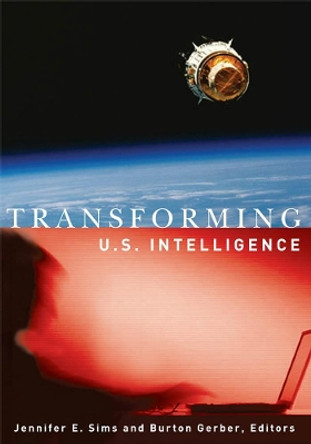Description
About the Author
Jennifer E. Sims is a non-resident Senior Fellow with the Chicago Council on Global Affairs. Before this residency, Sims was a core faculty member and Director of Intelligence Studies in the Security Studies Program at Georgetown University's Walsh School of Foreign Service while also serving as a presidential appointee on the USG's Public Interest Declassification Board (2008-2011) and as a member Director of National Intelligence's Senior Advisory Group. During her more than ten years of US government service, Dr. Sims was Deputy Assistant Secretary of State for Intelligence Coordination (1994-1998) and Intelligence Advisor to the Under Secretary for Management and Coordinator for Intelligence Resources and Planning at the US Department of State (1998-2001). In 1998, Dr. Sims received the Intelligence Community's highest civilian award, the National Distinguished Service Medal, for developing the concept of intelligence Support to Diplomatic Operations (SDO) and implementing it during the Balkan War with the establishment of the first Diplomatic Intelligence Support Center in Sarajevo.
Reviews
This lengthy work gives readers a great deal to ponder, particularly Sims's illustration of the critical roles that intelligence gathering and analysis play in determining the course of conflict, invisible though they often are. * Choice *
In a real tour de force, Jennifer Sims develops and deploys a broadened concept of intelligence to show how it can lead to a decision advantage that affects the course of history. The cases studied are unusual and extraordinarily well done. This important book is a pleasure to read and deserves a wide audience." -Robert Jervis, author of Why Intelligence Fails
Jennifer Sims takes the reader on a fascinating tour of intelligence failures and successes from the Spanish Armada to today's post-911 world. Her rigorous analysis reminds us that intelligence in war does not need to be perfect; it just needs to be better than the intelligence on the enemy's side." -Scott D. Sagan, Caroline S.G. Munro Professor of Political Science, Stanford University
The concept 'decision advantage' is central to the mission of U.S. intelligence * providing policy makers with intelligence to give them an information advantage over other international actors. Indeed, the term 'decision advantage' figures prominently in a display in the offices of the Director of National Intelligence. Jennifer Sims, a long time intelligence veteran, is properly credited with originating the concept and its definition. She has now taken this concept and examined how it worked across a range of historic policy dilemmas, from the threat posed to England by the Spanish Armada to the current issue of cyberspace. Dr. Sims has produced a thoughtful and provocative study that bridges intelligence theory and intelligence history." -Mark M. Lowenthal, Assistant Director of Central Intelligence for Analysis & Production (2002-05), and author of Intelligence: From Secrets to Policy *
Sims has produced a thought-provoking book that seeks to bridge intelligence theory and history. The case-studies are engaging and full of detail on the influence of intelligence on military and diplomatic competition, which will be of interest to a broad audience...Sims's book should be read widely. * Dan Lomas, International Affairs *
Jennifer E. Sims's Decision Advantage is an examination of how intelligence has influenced select decision-makers, through three broad periods in history, culminating in a proposed theory of intelligence in international politics...as a historical study of intelligence, the book excels. * Robin Kemp, H-Net *
In Decision Advantage, Jennifer E. Sims seeks to correct both popular misconceptions of how espionage operates and rebut the views of those who dismiss its importance in international politics. * Mitchell B. Reiss, Intelligence, Strategy and Governance in the Twenty-first Century *
Book Information
ISBN 9780197508046
Author Jennifer E. Sims
Format Hardback
Page Count 632
Imprint Oxford University Press Inc
Publisher Oxford University Press Inc
Weight(grams) 1002g
Dimensions(mm) 243mm * 163mm * 40mm






